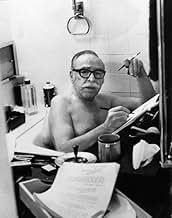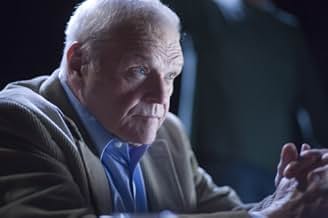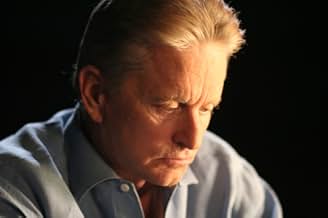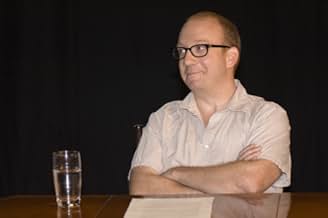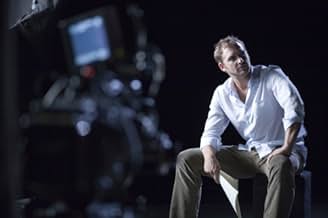Adicionar um enredo no seu idiomaThrough a focus on the life of Dalton Trumbo (1905-1976), this film examines the effects on individuals and families of a congressional pursuit of Hollywood Communists after World War II. Tr... Ler tudoThrough a focus on the life of Dalton Trumbo (1905-1976), this film examines the effects on individuals and families of a congressional pursuit of Hollywood Communists after World War II. Trumbo was one of several writers, directors, and actors who invoked the First Amendment in ... Ler tudoThrough a focus on the life of Dalton Trumbo (1905-1976), this film examines the effects on individuals and families of a congressional pursuit of Hollywood Communists after World War II. Trumbo was one of several writers, directors, and actors who invoked the First Amendment in refusing to answer questions under oath. They were blacklisted and imprisoned. We follow T... Ler tudo
- Prêmios
- 1 vitória no total
- Self
- (cenas de arquivo)
Avaliações em destaque
It keeps the audience interested by contributions from different actors reading Trumbo's letters, letters and writings he wrote before, during and after the dark era of blacklisting, and when he spent time in prison for not "naming names" to the Senate subcommittee.
Brian Dennehy, Michael Douglas, Paul Giamatti, Josh Lucas, Nathan Lane and others are interspersed with actual interviews with Dalton Trumbo, his friends, and his family members including his loyal wife and children.
Trumbo wrote "Johnny Got his Gun" which was a commentary on the futility and human costs of war. The book actually was banned for a time in the U.S. It is important for students to learn of these censorship issues, which can and do exist, even in our country. The run time is not overly long for a documentary. Highly recommended. 10/10.
The producers of those films were also interviewed: Otto Preminger in archival footage and Kirk Douglas in a recent (and poignant) interview. The best part of the film is the lively Trumbo himself in interviews from the 1940s to the 1970s. The entire package is elevated artistically by a cast of top-notch actors who give great performances using only Trumbo's words, from his letters and other writings. The best of these is Nathan Lane's reading of Trumbo's letter to his son on the subject of masturbation.
"Trumbo" is a documentary about the man in all of his forms: writer, father, person, husband, friend and more. Directed by Peter Askin and written by Christopher Trumbo (Dalton's son) based on his own play, this documentary is an original look into the life and work of one the greatest screenwriters of all time. Not only that. An ensemble cast appears performing and reading many letters written by Trumbo during his different moments in life. Michael Douglas, Joan Allen, David Strathairn, Josh Lucas, Donald Sutherland, Liam Neeson, Brian Dennehy, Nathan Lane and Paul Giamatti put the emotion by reading and performing Dalton's vision of the world, his fights against the people who harmed him and many others brilliant pieces of writing.
Here there's testimonies of people who met him, like his son, some friends, Dustin Hoffman, Kirk Douglas (who helped Trumbo during the period when he couldn't write by giving Trumbo a screen credit for his work on "Spartacus") and we see archive footage of Trumbo himself in many interviews. This great man was a strong supporter of freedom of speech, a great liberal that was misunderstood in his time when many thought that he was Comunist because of the subjects and the way dealt with it on his films. But he was also a fighter who fought against all the problems he had, stood up for those who were his friends, a peaceful and funny warrior. To quote his own words: "I don't look for trouble but they look for me".
An interesting subject that appears here is all of Trumbo's works on movies during the Black List period using a fake name (The Front). He wrote many movies using a front, one of them is "Roman Holiday" and the other was "The Brave One" (under the name of Robert Rich). "The Brave One" won an Academy Award of Best Screenplay in 1957 and no one attended the Ceremony to pick the Oscar. Of course, Trumbo couldn't show up because he was forbidden to write, Motion Picture Association wouldn't let. But the Oscar was given to him years later. It's a very interesting thing that doesn't happen these days, screenwriters nowadays doesn't have that kind of experience to put into a screenplay. Trumbo did that, used his own hard experience in movies like "Spartacus", "Papillon" and "Johnny Got His Gun". If you pay attention to these movies when they appear in the documentary you will notice that the characters quotes are a reflexion over Trumbo's life but at the same time it's something that fit very well in the movies. Highly recommended! 10/10
What a story, told mostly by Trumo himself through his letters, segment of his book "Johnny Got His Gun," and interviews he gave. The letters and book portion are read by a wonderful cast: Michael Douglas, Josh Lucas, Nathan Lane, Paul Giametti, Diane Lane, David Strathairn, Brian Dennehy, Liam Neeson, and Donald Sutherland.
There are also interviews with his children, Mitzi and Christopher, Walter Bernstein, Otto Preminger, Kirk Douglas, Dustin Hoffman, Kate Lardner, and others.
We're shown a brilliant man who is an equally brilliant screenwriter. His career is stopped thanks to the blacklist, because he refused to answer "are you now or have you ever been a member of the Communist party?" - not taking the fifth amendment which would protect him from self-incrimination, but, like the rest of the "Hollywood Ten," the first amendment where the government is prohibited from inhibiting free association, and their right to silence.
Trumbo liked a good fight, and he stuck to his beliefs, even though it meant going broke, having to move to Mexico, and ultimately writing 18 screenplays under other names or being uncredited.
It wasn't until the late '50s, when some producers began hiring blacklisted people and 1960, when Otto Preminger and Kirk Douglas broke the blacklist by crediting Trumbo for their films, that the blacklist began to lose its sting. It would take others much longer to regain their reputations, if they ever did. Many lives were ruined in its wake.
This is such a compelling documentary, but if you weren't around in that era, it probably won't have the impact it did on someone like me. When I was growing up, the most terrifying thing in the world was Communism.
In truth, it was a philosophy that sounded good to people during the depression. Philosophies on paper always sound good - unfortunately they don't work when you have human beings involved. Most people became disillusioned with it and, after attending some meetings or even joining, gave it up.
Sadly, if. like Lee Grant, you even went to the funeral of someone who was suspected of being a communist, you were blacklisted.
As Trumbo put it, the Elks were probably as influential in the end. But J. Edgar, McCarthy, and others saw Communists under every chair. It was a furor that caused a lot of damage and denied us the work of some great artists.
Highly recommended for an excellent look at what was going on during that time.
Você sabia?
- CuriosidadesThe film was inspired by "Trumbo: Red, White and Blacklisted," a play compiled from Dalton Trumbo's letters by his son, Christopher Trumbo. The play opened off-Broadway in 2003, with Nathan Lane, also in the film, as Trumbo and directed by Peter Askin, who directed the film. One of the actors who stepped in was Brian Dennehy, also in the film, who then toured the show nationally.
- ConexõesFeatures A Princesa e o Plebeu (1953)
Principais escolhas
- How long is Trumbo?Fornecido pela Alexa
Detalhes
Bilheteria
- Faturamento bruto nos EUA e Canadá
- US$ 109.057
- Fim de semana de estreia nos EUA e Canadá
- US$ 28.125
- 29 de jun. de 2008
- Faturamento bruto mundial
- US$ 109.057
- Tempo de duração1 hora 36 minutos
- Cor
- Mixagem de som
- Proporção
- 1.85 : 1
Contribua para esta página




